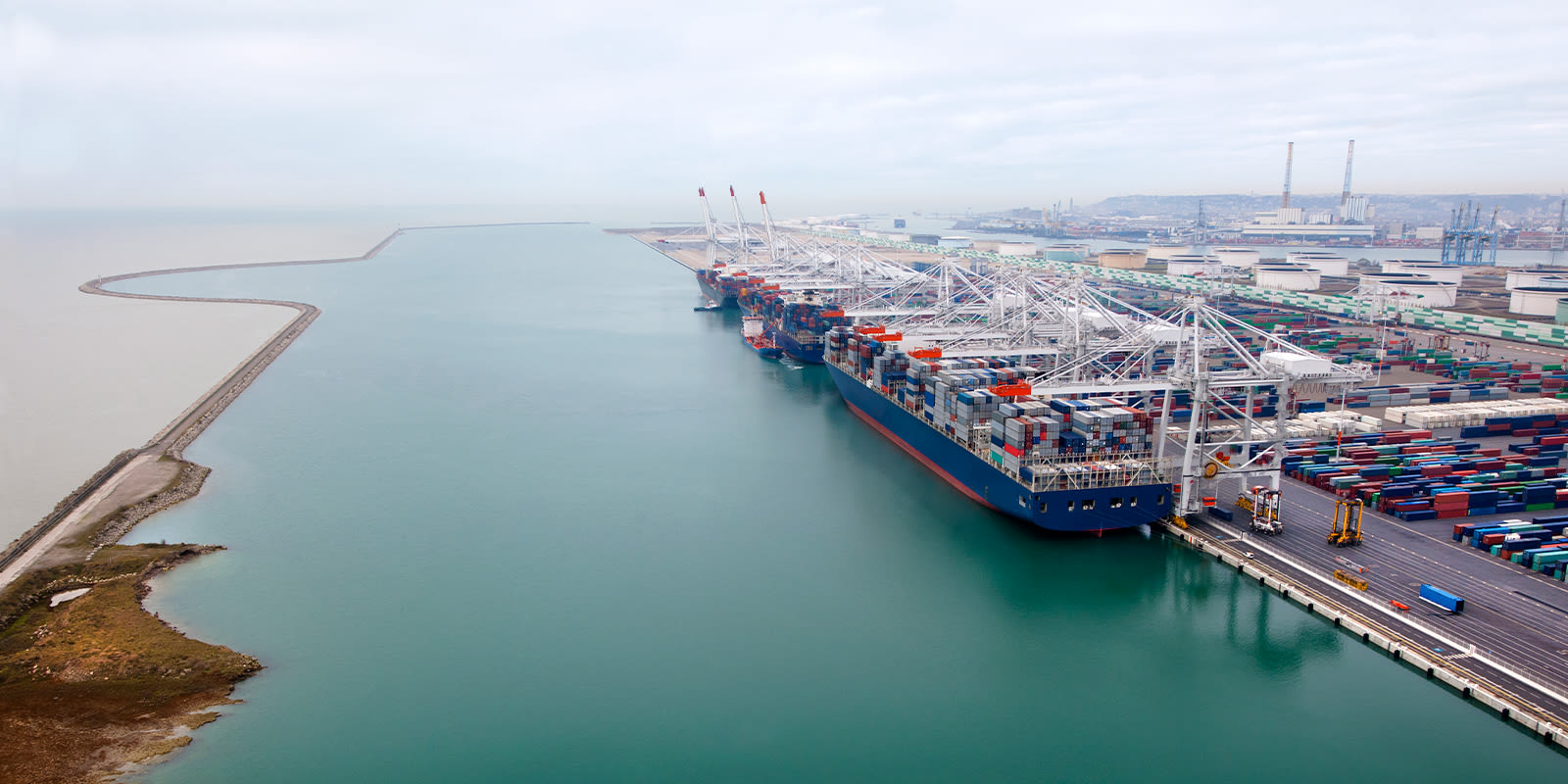
April 13, 2021
How to Cope as Suez Congestion Hits Europe for the Next Month or More
Tags:
How to Cope as Suez Congestion Hits Europe for the Next Month or More

April 13, 2021
Congestion from the blockage of the Suez Canal is going to rock European and UK ports in the coming weeks. As impacts take shape, companies are facing snarled port traffic, delays, surcharges, and container crunches.
Knowing what lies ahead can help. Stay agile and informed this month so that as new information arises, your supply chain can remain as fluid as possible.
What’s Happening with Ever Given Now
For now, the Ever Given is in the Suez Canal’s Great Bitter Lake, where the Suez Canal Authority is keeping her until a few matters are resolved. Namely, repairs are still underway, but the owner of the ship and the Canal Authority must agree to salvage remuneration, too. That can be a complex process.
General Average
General Average has been declared. At the core of General Average is the responsibility to share in any major expenses a vessel incurs during an incident. For an event of this magnitude, working out all the details could take years, but consignees with insurance are more likely to retrieve their cargo by providing security documents.
Companies without insurance have to make a cash deposit—based on a percentage of the total commercial invoice value of all cargo on the ship—to receive their goods.
In these cases, General Average can be a wake-up call, even for companies that don’t have shipments on the Ever Given: Cargo insurance is worth the cost.
OK, What About Other Vessels?
The good news is that the backlog of vessels in and around the Suez Canal is resolved. The first group to clear the Suez after the Ever Given was freed are arriving at their next scheduled ports in Europe now. The vessels that diverted to sail around the Cape of Good Hope are expected to arrive closer to the last week of April or later.
Flexport customers waiting on these vessels can find updates on their shipments in the platform.
Congestion-Related Charges
Congestion remains the main challenge in the coming weeks. With the delayed vessels arriving alongside scheduled vessels, ports across Northern Europe and the UK are going to be packed. There could be as much as a 47% spike in arrivals through the end of May.
As a result of port congestion, companies can expect surcharges at ports and across other modes of transport. Longer standing times for containers within ports could also lead to demurrage charges.
Direct truck, barge, and rail carriers are going to be just as overwhelmed. Some have already announced congestion surcharges with more possible.
Blank Sailings
Carriers are likely to announce blank sailings in the coming weeks. If it seems counterintuitive to cancel sailings when delays create urgency, consider the logistical realities. Removing some sailings allows carriers to restore reliability to the sailings they keep on the schedule.
Based on current carrier announcements, calendar weeks 16 and 17 will feature the lowest offered sailing capacity. More announcements may be forthcoming, though.
Just like we saw during last year’s height of Covid-related cancellations, a constrained market tends to favor higher-paying cargo interests.
A few ways to improve your chances: Consider paying premium rates to help ensure space or prioritize cargo for faster transport. Be sure to communicate these choices to your freight forwarder, so shipments can go as smoothly as possible.
Container Availability
Many vessels on the way to Asia have been impacted by the Suez delays, so companies can expect a critical equipment situation across Europe and the UK.
Container availability has already been a sore point for about a year now. When Covid-related shutdowns first occurred, many containers were stranded in the wrong places. Carriers have been taking occasionally extreme measures to get them redistributed, but an immense wave of demand over months has made it difficult.
With the situation compounded, companies can make a few adjustments to improve the likelihood of successful booking:
- Book containers as far out in advance as possible—at least 21 days and no less than 14 before your cargo-ready date for the best chances.
- Stay flexible when it comes to container sizes and types. If you find availability that you can make work, don’t wait for something else to come along.
- Avoid last-minute changes with some quick supply chain diligence. For example, check in with suppliers to confirm cargo-ready dates.
As vessels make their way across European ports and head back to Asia, congestion may reduce by the end of May or early June; however, ocean capacity has been in high demand for several months now and is likely to remain tight through the summer.
For more on how the Ever Given grounding will impact Europe and UK logistics, join us on Tuesday, 20 April at 16:00 CET for a 30-minute Freight Market Update Live, a special webinar edition of the weekly newsletter.
About the Author

April 13, 2021


